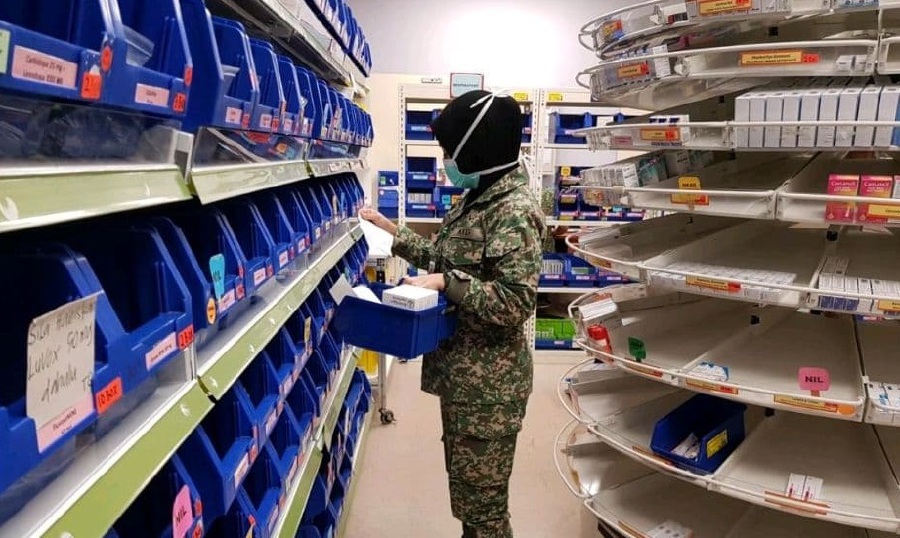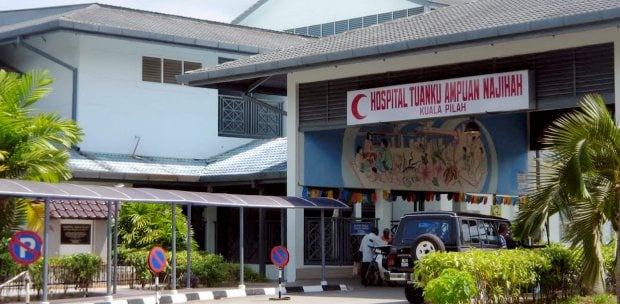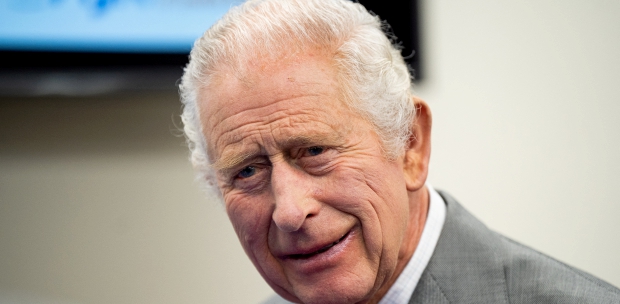KUALA LUMPUR: Trust between patients and medical professionals is essential for good healthcare.
Likewise, pharmacists play a key role in the well-being of people by effectively dispensing medicine and medical supplies in a timely manner, especially during the current Covid-19 global pandemic.
Thus, the International Federation of Pharmacists (FIP) acknowledged that pharmacists were recognised as among the top five most trusted professionals in the world.
Malaysian Pharmacists Society's military and emergency pharmacy chapter chairman Major Manvikram Singh Gill said they were tasked to help patients to get the best out of medicines to remain healthy.
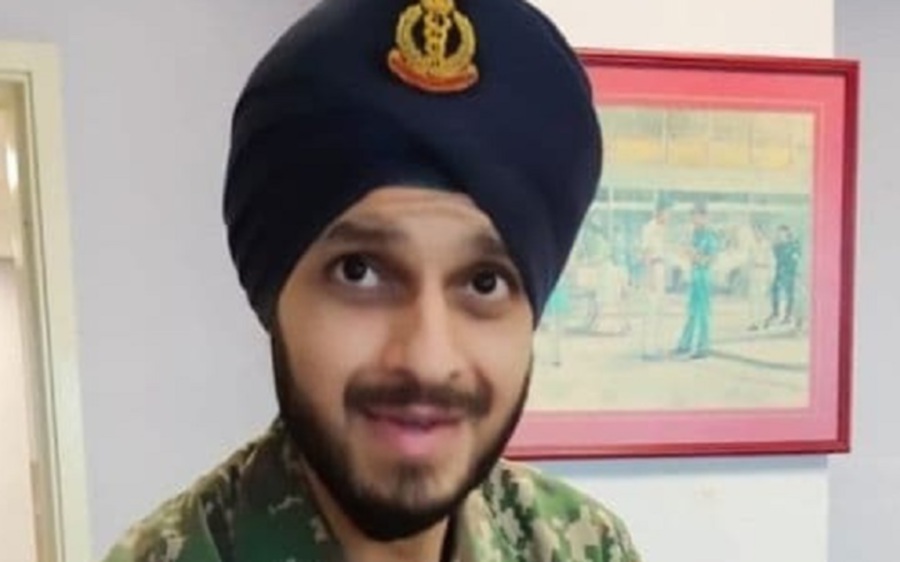
"Pharmacists - serving at hospitals, community centres, academia, industries, regulatory agencies and research institutions - have a large role in shaping healthcare delivery to individuals.
"Similarly, pharmaceutical scientists are trusted to develop safe and effective medicines to save lives and change them for the better.
"Pharmacy educators are looked upon to deliver competent and caring pharmacy professionals," he told The New Straits Times this in conjunction with World Pharmacy Day, themed 'Pharmacy: Always trusted for your health', on Sept 25.
Manvikram, who recently completed his Master's degree in pharmacy practice with the International Medical University in Bukit Jalil, is a senior medical officer at the Tuanku Mizan Armed Forces Hospital in Wangsa Maju.
He also bagged the 'Pharmacy Professional of the Year 2019' award for Southeast Asia.
Manvikram stressed that trust was a reservoir of goodwill for future use, where pharmacists had built a huge one over many years of caring and expert advice.
"The infomedic around the Covid-19 pandemic has fuelled a record high distrust among society.
"At such crucial times of uncertainty, when vaccine hesitancy remained a major hurdle, public trust in pharmacy has become more important than ever before," he said.
Manvikram added that pharmacists ought to have a genuine interest in their patients by taking time to listen to their needs, especially during the present trying moments of the Covid-19 global pandemic.
"Doing so has helped pharmacists establish a meaningful connection and build a positive relationship with them.
"As the most accessible healthcare provider in many parts worldwide, we must demonstrate consistent skills and care despite the long working hours," he said.
Manvikram added that military pharmacy was a niche area of practice and its staff were trained on multi-tasking to handle operations, procurement, management, research and development, and service delivery.
"Despite our limited strength (of 24 officers and 94 technicians), we are ready to be deployed anywhere at anytime, during peacetimes or conflict," he said citing examples of their involvement at the Greater Klang Valley Special Task Force and the Malaysia Agro Exposition Park Covid-19 Quarantine and Low-Risk Treatment Centre in Serdang, and the nine field-hospitals nationwide.
Meanwhile, Armed Forces Health Services Division Inspector-General, Brig-Gen Datuk Abdul Halim Basari explained how Malaysian military hospitals rose to the Covid-19 challenge.
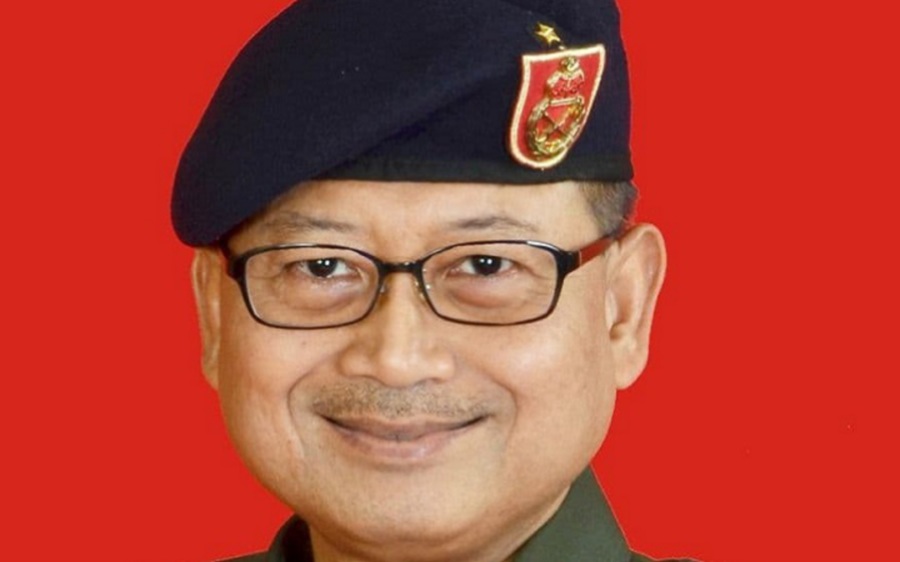
Specifically, he disclosed how the Tuanku Mizan Armed Forces Hospital had customised pharmacy services, while maximising available resources during the pandemic.
"As the pandemic swept the world, the commitment of pharmacists and pharmacy technicians, who are very much involved in the fight against the virus, should be commended.
"These are the people who toiled to alleviate pressure on the health system caused by the pandemic," said Halim, who is also the FIP's military and emergency pharmacy vice-president.
He revealed that addressing the challenges of Covid-19 began at the medicine store, where pharmaceutical and medical logistics (PML) pharmacists ensure personal protective equipment (PPE) is provided to safeguard healthcare workers.
"The pharmacists also must ensure medicines are always available to treat patients.
"They must also mitigate supply outages and shortages, outsource and negotiate credible alternatives, cater for unpredictable demands, maintain cost effectiveness, and ensure quality, safety and efficiency," he said, referring to the Movement Control Order implementation on March 18, 2020 and the challenges faced at the height of the pandemic.
Among the immediate measures his division undertook, was in rescheduling non-essential clinic appointments.
"This rescheduling was to ensure minimal unnecessary patient traffic at the hospitals, to help with social distancing, and to ensure available healthcare professionals could be directed towards dealing with the Covid-19 crisis.
"Clearly, outpatients due to see a doctor or have repeat prescriptions dispensed at the pharmacy were affected.
"However, good pharmacy practice had to be conserved, whereby medication adherence was of the utmost importance, even during a crisis to minimise the risk of patients being admitted to hospital.
"We ensured that patients obtained their medicines and did not have to skip doses due to any reason," said Halim.
To minimise risks during the pandemic, various means were implemented to limit the frequency of hospital visits.
"This includes doctors conducting a telemedicine session with patients to prepare prescriptions that can be delivered via value added services (VAS) - if there are no changes to their pharmacotherapy - avoiding the need for patients to come to the pharmacy.
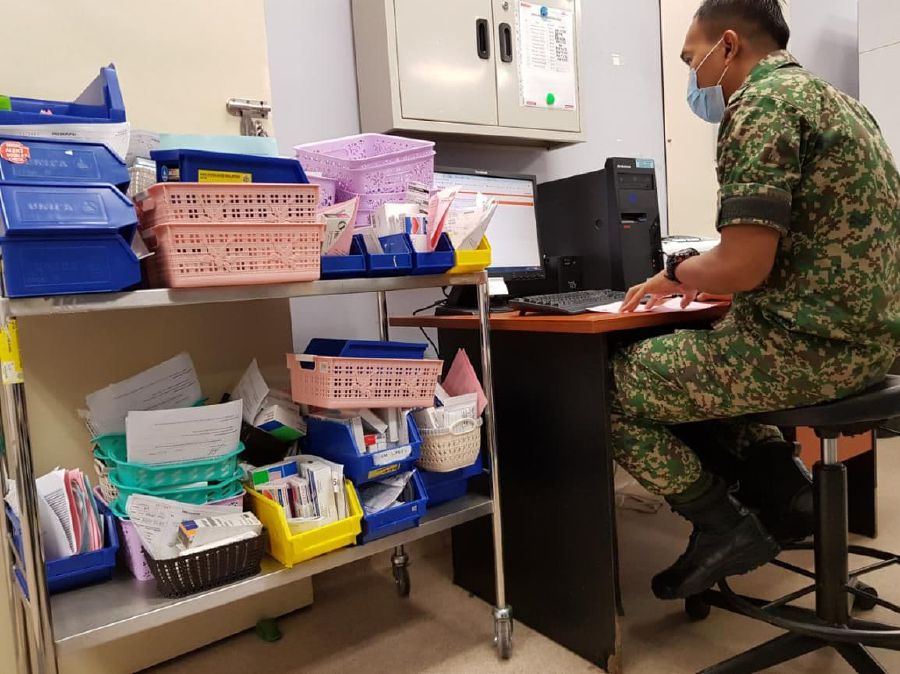
"VAS is also applied for resupply of prescriptions," said Halim.
VAS is promoted in various ways, especially via social media applications such as WhatsApp and Facebook, and includes delivering medicines by post or courier, automated dispensing units and scheduled collection times.
"These services are offered to reduce crowding and, subsequently, patient waiting times at outpatient pharmacies.
"VAS offered by hospitals to patients may differ depending on the suitability of the facility and the medicines involved. For instance, not all medicines can be couriered, especially cold-chain medicines, liquid dosage forms and certain class of medicines," he said.
However, if a patient needs to be present in the pharmacy, it is vital to ensure that social distancing is implemented in waiting areas, limiting potential exposure to other patients and staff.
"Hand sanitisers are placed on counters for patients to use. Information on Covid-19 and notices on the importance of hand hygiene are displayed.
"All these strategies help to protect vulnerable patients from unnecessary risks while ensuring they get the medicines they need to remain healthy and stay out of hospital," said Halim.
The division's pharmacy director Colonel Mohd Adlan Adnan said that it was a challenge to ensure the pharmaceutical supply chain functioned as usual.
"It is vital for pharmacy teams to ensure they take necessary precautions to protect themselves, ensuring the healthcare services did not collapse," he said.
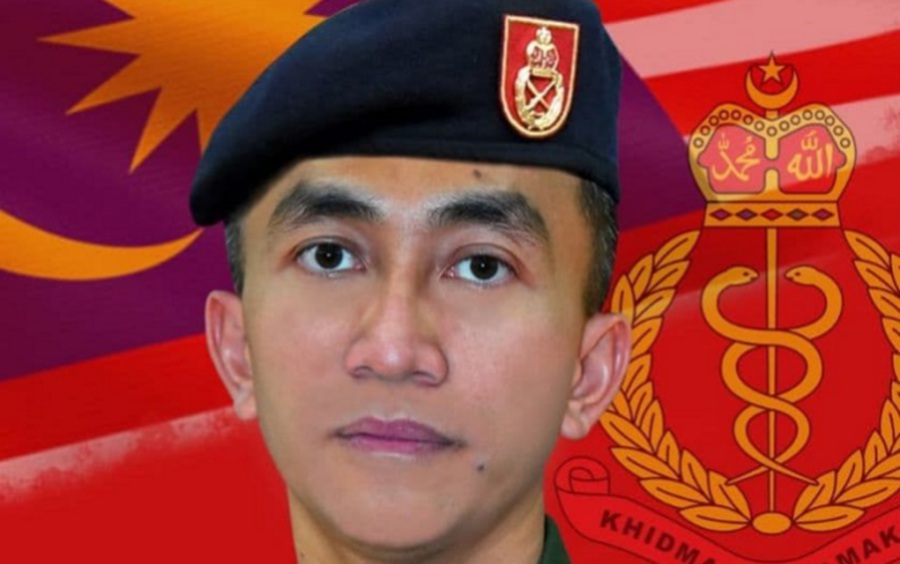
Adlan called on pharmacists to strengthen their resilience, and lead, adopt and integrate well-rounded strategies in their practices as the Covid-19 pandemic gripped the country.
"If pharmacy teams can cope with the dynamic changes caused by the current crisis and preserve high performance pharmacy practice, then they will win the hearts and minds of healthcare providers and the public.
"Pharmacists must grasp this opportunity to make themselves even more visible and accessible," he said.


